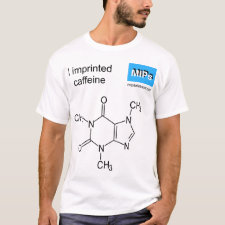
Authors: Hashim F, Mehamod FS, Nawi NA
Article Title: In Vitro Toxicity Evaluation of Caffeine Imprinted Polymer (CAF-MIP) for Decaffeination Method on Normal Chang Liver Cells.
Publication date: 2017
Journal: Makara Journal of Technology
Volume: 21
Issue: (1)
Page numbers: 19-25.
DOI: 10.7454/mst.v21i1.3075
Alternative URL: http://journal.ui.ac.id/technology/index.php/journal/article/view/3075
Abstract: Over consuming of caffeine is one of the factors to a few health problems such as insomnia, hypertension and cardiovascular disease. This preliminary study was conducted to evaluate the Caffeine-Imprinted Polymer (CAF-MIP) toxicity that was synthesized for a new alternative method for decaffeination. It is crucial to evaluate the toxicity of CAF-MIP as this product is potential to be used as complimentary with any drinks containing caffeine. In this study, the CAF-MIP toxicity potential was confirmed on Normal Chang Liver cell (NCLC) based on its IC50 value and acridine orange and propidium iodide (AO/PI) staining for mode of cell death observation. Proliferation assay was also conducted after 24, 48 and 72 hours at 30 μg/ml on NCLC and it showed that CAF-MIP promote NCLC growth as shown by at various concentration of CAF-MIP increase the percentage of NCLC viability. Observation under light microscopes on NCLC incubated wit CAF-MIP and NIP showed the normal, viable cell morphology, cuboidal and monolayer cell morphology and this can be seen with green fluorescence when view under fluorescence microscope. In conclusion, from this study, it is proved that the CAF-MIP does not initiate toxicity effects on human liver cells, meanwhile induction of cell proliferation was observed
Template and target information: caffeine
Author keywords: caffeine, Toxicity, in vitro, liver cells, Cytotoxicity



Join the Society for Molecular Imprinting

New items RSS feed
Sign-up for e-mail updates:
Choose between receiving an occasional newsletter or more frequent e-mail alerts.
Click here to go to the sign-up page.
Is your name elemental or peptidic? Enter your name and find out by clicking either of the buttons below!
Other products you may like:
 MIPdatabase
MIPdatabase









